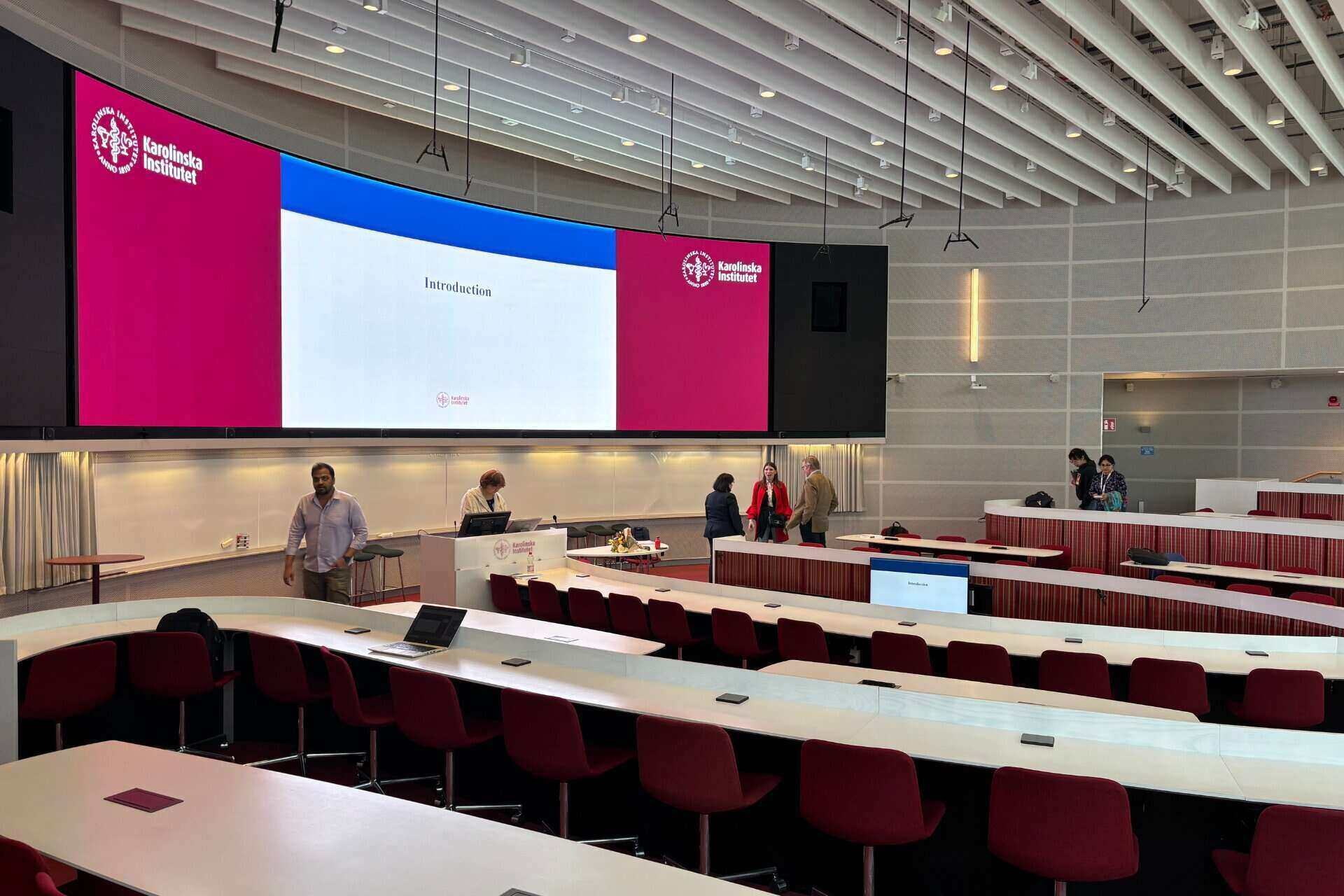
Dr Emily Clarke recently visited the Karolinska Institute in Sweden on a four-week-long training programme on Orthopaedic Microsystems. Dr Clarke discusses her trip, the invaluable skills she learned, and the Swedish practice of “spikning”.
Recently, I visited the Karolinska Institute in Sweden on a MOVE fellowship, supported by the UK Extracellular Vesicle Society. MOVE fellowships aim to foster collaborations between the members of different European Extracellular Vesicle societies and networks. Extracellular vesicles (EVs) are tiny, membrane-bound particles released by cells into their surrounding environment and act as a means of cell-to-cell communication, transferring molecules between cells and influencing their behaviour.
The fellowship involved a two-week secondment to Professor Samir El Andaloussi’s laboratory in the Department of Laboratory Medicine. Supervised by Dr Andre Gorgens, our collaborative project focused on developing new analytics for surface markers, the molecules found on the surface of cells that help identify and characterise different cell types, for extracellular vesicles from horses. Specifically, the team investigated how antibodies developed against proteins from one species (e.g., human) are also able to bind to similar proteins in another species (e.g., horse).
This placement provided hands-on training in the technique of analysing and/or separating small particles by measuring their physical and chemical properties, known as flow cytometry. This was used to characterise surface markers on extracellular vesicles derived from synovial fluid (found in the joints) of equine patients with varying disease states, including healthy controls, osteoarthritis, and synovial sepsis.
The experience offered a unique opportunity to work alongside world-leading experts in an inspiring scientific environment. During the visit, I also attended a public PhD defence — a hallmark of the Swedish academic system. One fascinating aspect is the ritual of “nailing the thesis” (spikning), where the PhD candidate physically pins a printed copy of their thesis to a wooden board, often in a central location within the university, typically three weeks before the defence. This symbolic act marks the official announcement of the thesis and invites the academic community to scrutinise the work.

In Sweden, the defence is open to the public and includes a formal debate between the PhD candidate and a designated external expert known as the “opponent.” The opponent is typically a senior academic in the field who leads a critical discussion of the thesis, challenging the candidate on methodology, data interpretation, and the scientific relevance of their work. This rigorous and transparent approach fosters academic integrity and public engagement in science. Who knows, will we see “spikning” on The Quadrangle in the future?